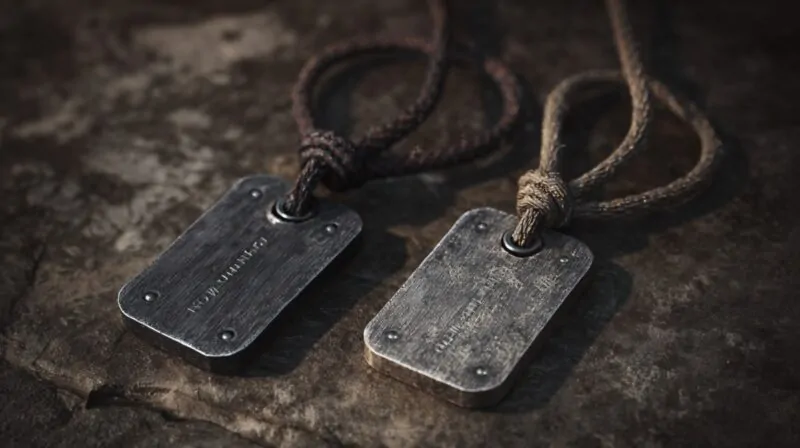Gaining admission to the United States Coast Guard Academy is a dream for many aspiring cadets. To achieve this, you need to meet several critical Coast Guard requirements.
These include a proven academic record, particularly in math and sciences, and demonstrated leadership skills.
The Academy, unlike other federal service academies, does not require a Congressional nomination, making the process slightly different but still highly competitive.
Your academic accomplishments are crucial, with the Academy recommending a combined SAT score of at least 1120 or an ACT score of 24.
Leadership and physical fitness also play a significant role in the selection process. Thousands of applicants vie for about 300 spots each year, so standing out holistically is key to success.
Now let us talk about the basic Coast Guard requirements that can help applicants to get into the Academy.
Table of Contents
ToggleCoast Guard Requirements
/
- Age requirements
- Educational background
- Citizenship and nationality
- Physical fitness standards
- Submission of application
- Standardized test scores
- Letters of recommendation
- Personal interview
- Leadership experience
- Community service
- Moral character
- Medical examination
- Background check
- Drug and alcohol policy
The requirements are quite strict, which is indicated by the Academy’s acceptance rate, which is around 16%.
Age Requirements
Applicants must be between the ages of 17 and 22 as of July 1 in the year of admission into the Coast Guard. It is a rule that applies to all applicants without exception.
Ensures candidates possess the maturity to meet the Academy’s demanding expectations. Aligns to provide a full educational and leadership experience tailored to younger candidates.
The Academy does not grant exceptions for individuals outside this age range, emphasizing the importance of meeting this requirement.
Educational Background
A strong educational foundation plays a pivotal role in the Coast Guard Academy’s admissions process.
Applicants must demonstrate academic preparedness and a commitment to personal and intellectual growth.
Meeting the minimum educational requirements is essential, but competitive candidates often exceed these benchmarks.
A high school diploma or an equivalent qualification is mandatory for eligibility. A strong emphasis on academic records with advanced coursework is highly recommended.
- Mathematics (e.g., Calculus, Statistics)
- Science (e.g., Physics, Chemistry, Biology)
- English (e.g., Literature, Composition)
High standardized test scores:
- SAT: A combined score of at least 1120, with most successful candidates scoring between 1240–1400.
- ACT: A composite score of 24 or higher, with competitive applicants scoring between 26–32.
Citizenship and Nationality

Applicants must be U.S. citizens to be eligible for admission. Permanent residents or international students are not considered for entry.
The citizenship requirement underscores the Academy’s focus on training future leaders for the U.S. Coast Guard.
Proof of citizenship, such as a birth certificate or passport, will be needed during the application process.
Physical Fitness Standards
Meeting stringent physical fitness standards is essential for success at the Coast Guard Academy and in service.
The physical fitness requirements are assessed through specific tests designed to measure endurance, strength, and agility.
- Running: Candidates are expected to complete a timed run, emphasizing cardiovascular endurance.
- Push-ups: A set number of push-ups within a specified time frame to assess upper body strength.
- Sit-ups: A timed test measuring core strength and stamina.
To meet these requirements effectively, candidates should adopt a structured fitness routine well in advance of the physical fitness examination.
Tips for Preparation
- Maintain a consistent workout schedule: Include cardio, strength training, and flexibility exercises.
- Focus on form and technique: Proper push-up and sit-up forms can improve test performance and prevent injury.
- Incorporate progressive overload: Gradually increase intensity, such as running longer distances or adding repetitions, to build stamina and strength.
- Ballistic stretching: Engage in exercises like dynamic stretches or controlled bouncing motions to enhance flexibility and agility.
- Simulate test conditions: Practice the required exercises under timed conditions to build confidence and track progress.
Submission of Application
View this post on Instagram
A post shared by Academy Endeavors | Service Academy Admissions Consultants (@academyendeavors)
You must begin by submitting an online application through the Coast Guard Academy’s official application portal. The application includes personal information, educational background, and extracurricular activities these are all Coast Guard requirements.
You should pay attention to specific deadlines, such as the Early Action deadline on October 15th and the Regular Admission deadline on January 15th.
It’s essential to provide a comprehensive and accurate application, showcasing your achievements, leadership skills, and commitment to service.
Standardized Test Scores
The Coast Guard Academy requires standardized test scores to evaluate academic readiness. You must submit either SAT or ACT scores. Although the Academy doesn’t specify a minimum score, competitive applicants usually have above-average performance.
For instance, a combined SAT score of at least 1120 or an ACT composite score of 24 is recommended. Most students accepted scores between 1240-1400 on the SAT and 26-32 on the ACT. Preparation and multiple attempts can help improve your scores.
Letters of Recommendation

Your application must include three letters of recommendation.
- Academic abilities
- Leadership qualities
- Character
A typical set of recommendations might include one from a high school counselor, one from a teacher (preferably in math or science), and one from a coach, employer, or community leader.
Aim for recommendations that provide specific examples of your achievements and potential.
Personal Interview
The personal interview is a crucial component of your application. It is conducted either in person or virtually by an Academy Admissions Officer or a Coast Guard Officer.
The interview assesses your motivation, communication skills, and suitability for the Academy.
Prepare by reviewing potential questions, practicing clear and confident responses, and understanding the Academy’s values and expectations.
Your ability to articulate your goals and experiences effectively can significantly impact your application.
Leadership Experience

Your leadership experience is crucial for admission. Evidence of leadership roles in school organizations, sports teams, or community groups is essential.
You need to show that you’ve successfully led teams, made critical decisions, and handled responsibilities.
Examples include serving as a team captain, student body president, or leader in scouting organizations.
Highlight your specific contributions and achievements in these roles, showcasing how you motivated others, resolved conflicts, and achieved goals.
Community Service
Active involvement in community service is another key aspect. It demonstrates your commitment to serving others and your ability to work collaboratively for the common good.
Volunteer work with non-profits, local community centers, or service projects is highly valued.
Aim to participate in activities that make a tangible impact, like organizing charity events or leading environmental cleanups.
Document these experiences with specific details about your role, the scope of the service provided, and any outcomes or positive changes that resulted from your efforts.
Moral Character
High moral character is non-negotiable. The Coast Guard Academy looks for individuals who uphold integrity, honesty, and ethical behavior.
It includes personal conduct, adherence to rules, and a clear demonstration of values for Coast Guard requirements. Applicants with a criminal record might have a hard time passing this test.
You must maintain a clean disciplinary record and exhibit behaviors that reflect respect for others and society.
It can be evidenced through testimonials from teachers, mentors, or others who can vouch for your character and the positive impact you’ve had on those around you.
Medical Examination
To qualify medically for the Coast Guard Academy, you have to undergo a thorough medical examination.
The examination is meant to identify any disqualifying medical conditions. For instance, conditions like asthma, diabetes, and severe allergies may disqualify you.
A detailed medical history review will also be part of the process. This review ensures there are no hidden conditions that could impede your service.
The medical examination is conducted through the Department of Defense Medical Examination Review Board (DoDMERB).
Background Check
A background check is necessary. This check ensures that applicants have a clean legal record.
The check will include your criminal history, civil litigation history, and any encounters with law enforcement. It’s important to disclose all incidents, no matter how minor.
A history of severe offenses, drug abuse, or other legal issues can disqualify you.
The background check process can be detailed, involving both local and federal law enforcement agencies. You can also run a check on yourself using online tools like FreePeopleSearch.com before applying. That will help you to see what would appear on your records during the background check process
Drug and Alcohol Policy
Strict adherence to the Coast Guard Academy’s drug and alcohol policy is mandatory.
Use of illegal drugs, misuse of prescription medications, and legal issues related to alcohol can disqualify you. During your application process, expect random drug and alcohol screening tests.
Admission into the Academy means adherence to their zero-tolerance policy. Violations, including drug use or alcohol abuse, will result in immediate disqualification.
Post-Acceptance Requirements
After acceptance into the Coast Guard Academy, you will need to complete a series of important steps to officially join the Academy.
These include attending a Swearing-In Ceremony and participating in an Orientation Period.
Swearing-In Ceremony
The Swearing-In Ceremony marks your official entry into the Coast Guard Academy. This ceremonial event is a symbolic and formal introduction to the cadet’s commitment to serve. You will take an oath of allegiance, pledging to uphold the values and responsibilities of the Coast Guard.
You should wear appropriate attire, typically your issued uniform, and be prepared to stand before Academy officials, family, and fellow cadets. The ceremony typically occurs shortly after your arrival on campus, setting the tone for your forthcoming journey.
Parents and family members are often invited to witness this significant moment. It’s a moment of pride and recognition, representing the transition from civilian to cadet.
Orientation Period
The Orientation Period, also known as Swab Summer, is an intensive training program designed to prepare you for the rigors of Academy life. This period spans several weeks and includes physical training, military instruction, and academic preparation.
You will participate in various activities meant to instill discipline, teamwork, and leadership skills. Daily schedules are demanding, starting early in the morning and extending into the evening. Physical fitness is heavily emphasized, with activities such as running, swimming, and drills.
Additionally, you will learn the foundational aspects of Coast Guard operations, regulations, and customs. This training is crucial for your personal development and acclimation to the Academy’s culture.
How is the Coast Guard Academy Different?
Unlike the other four Service Academies, the Coast Guard Academy doesn’t require any type of nomination, not even from Congress or a service-connected source.
It offers a more focused selection of academic majors compared to the other Service Academies. They provide nine majors:
- Civil engineering
- Electrical engineering
- Cyber systems
- Mechanical engineering
- Naval architecture and marine engineering
- Operations research and computer analysis
- Marine and environmental sciences
- Management
- Government
Summary
Gaining admission to the Coast Guard Academy requires a balance of academic achievement, physical fitness, leadership experience, and strong moral character.
Applicants must demonstrate their readiness to meet the rigorous demands of Academy life and their dedication to serving their country.
By meeting these standards and presenting a well-rounded application, candidates can take a significant step toward a rewarding and impactful future in the Coast Guard.
Sources
- US News – United States Coast Guard Academy Admissions
- College Vine – What Are the Entry Requirements for Coast Guard Academy?
- Gain Service Academy Admission – How to Get Into The Coast Guard Academy
- United States Coast Guard Academy – Apply to the Coast Guard Academy
- United States Coast Guard Academy – Admissions
Related Posts:
- Is West Point Hard to Get Into? Inside the…
- What to Know About Physical Fitness Requirements for…
- Joining the Coast Guard Reserve - Requirements and Benefits
- Inside the Service Academy Summer Programs: What You…
- Air Force Academy vs. West Point: Which School Is a…
- How Good is Academy Sports Military Discount and How…







